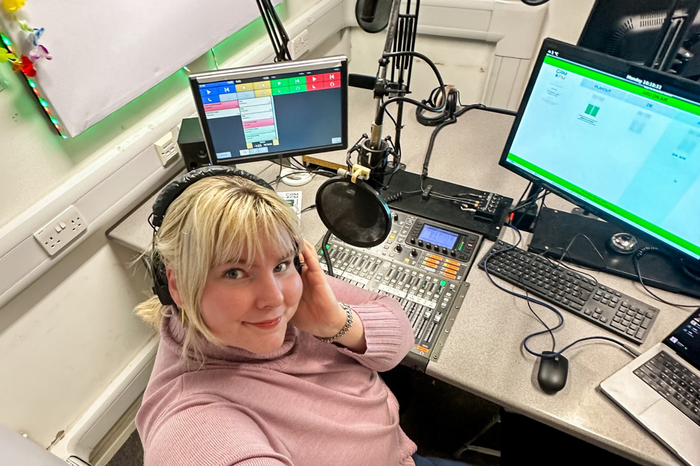Travelling through Cambridge’s global music scene
Sharleen Opia speaks to the DJs and radio hosts bringing global music to Cambridge

World music, global music, international music: many terms have been used to describe music that lies beyond English-language hegemony and the countries whose music dominates the industry. These terms are generally reserved for traditional styles. Therefore, genres such as reggaeton, Afrobeats and K-pop, all forms of contemporary pop music, are not considered under this label. But global grooves are moving closer to the mainstream within and outside the university. I spoke to some of the people making waves in the Cambridge scene.
“We all have hazy yet beautiful memories associated with music”
Many of the music styles that global music encompasses have deep roots in vinyl culture. This history is honoured by Cambridge Dance, featuring avid vinyl collector and DJ, Soroosh Avazkhani. When my friends and I discovered this event, we were blown away. Platforming bossa nova, Afrobeat, disco and more, the night offers something refreshingly different from the pop music that dominates the city – finally, an event to dance the night away. For Soroosh, a good club night involves “getting into a dark room, just letting the sound engulf you and shutting up and dancing”. Soroosh cites safety as an important part of this letting-go process as well as the pertinence of community.
Mapa del Mundo is a Cam FM show run by two MMLers, Ishaan and Sonja, who became friends during their year abroad in Buenos Aires. “Music discovery has always been interesting to me,” Sonja explains, highlighting how much of making their show is researching the “global groove” tracks they showcase and their socio-historical contexts. Their recent episode on Mali came to be after reading the musical history book In Griot Time and producing 1500 words of research. They describe their tracks as “nostalgic, groovy and happy”.
“Non-western music is normal: not ‘world’ music, just music”
Soroosh also mentions the importance of nostalgia, recalling experiences of living in Iran as a child and falling asleep at parties. “[At Cambridge Dance] I play Iranian music for myself,” Soroosh explains, noting that, sometimes, he is unsure whether his mind recognises individual tracks or just familiar sounds. We all have hazy yet beautiful memories associated with music. Sonja recalls a listener writing in from a Tesco car park that she bonded with her husband by listening to Nigerian musical pioneer Fela Kuti. Nostalgia, connection and emotion in music lie beyond linguistic understanding; that is what makes music so special.
The term “world music” originated in the early 80s as a marketing strategy by British and American record companies to promote foreign, especially African, music to Western consumers. Soroosh, who founded Cambridge Dance, used the term when he began advertising the event. It was a way of describing the music styles to a previously unexplored Cambridge audience: “I thought that I maybe need to use it and then I’ll stop using it…” However, both Soroosh and the Mapa del Mundo team disagree with the term.
“There is a lot missing in Cambridge, a lot is untapped”
It is difficult to separate the idea of world music from the colonial gaze; the term is exoticising, creating a homogenising, imaginary border between Western music and that of the much larger and diverse rest of the world. For many of us, especially with a family history of migration and cultural exchange, listening to non-English or non-Western music is normal: not “world” music, just music.
Ishaan and Sonja emphasise the importance of taking time to specify the uniqueness of each track and its genre(s) but acknowledge that the term “global” can be necessary due to the broadness of their show. “The show is a tasting menu, not to lump [genres] together but to show the variety that exists,” explains Ishaan.
In 2020, the Grammys changed the category Best World Music Album to Best Global Music Album. However, the term “global music” remains generalising. Rather than being a genre in itself, “global music” encompasses various traditional styles and sounds from underrepresented regions, including disco, soul and rock, and should therefore be used alongside the genre – i.e., global disco.
Is there a global music scene in Cambridge? Ishaan and Sonja believe so, recalling their collaboration with Mexican Society on their cumbia episode. Soroosh expresses that there is something unique about the Cambridge music scene: “There is a lot missing in Cambridge, a lot is untapped.”
The Cambridge global music scene is constructing communities by bringing people together in the warm bliss of emotional nostalgia, connecting people beyond borders, languages and genres to experience one of the best things about humanity: music.
You can listen to Cambridge Dance mixes on Soundcloud and receive updates about the night on Instagram. Mapa del Mundo is on Instagram and on Cam FM every Saturday from 5-6pm.
 News / Uni Scout and Guide Club affirms trans inclusion 12 December 2025
News / Uni Scout and Guide Club affirms trans inclusion 12 December 2025 News / Pembroke to convert listed office building into accom9 December 2025
News / Pembroke to convert listed office building into accom9 December 2025 Features / Searching for community in queer Cambridge10 December 2025
Features / Searching for community in queer Cambridge10 December 2025 News / Uni redundancy consultation ‘falls short of legal duties’, unions say6 December 2025
News / Uni redundancy consultation ‘falls short of legal duties’, unions say6 December 2025 News / Gov declares £31m bus investment for Cambridge8 December 2025
News / Gov declares £31m bus investment for Cambridge8 December 2025









